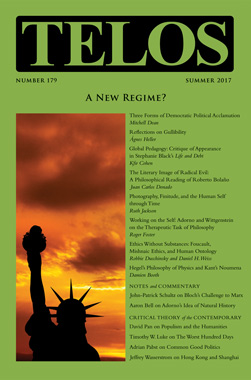It is difficult to know what constitutes the latest social media “scandal” for the news organizations that promote it as such. Of course, it follows the seemingly unending political concerns around social and digital media since the election of President Trump and other cornerstone events such as the Brexit vote. It stands in the long line of concerns about email hacking, Russian “meddling,” “fake news,” undignified presidential tweeting, and bots, and the indictments of workers of a Russian internet agency. There is the more general, but somewhat vacuous, thesis that the “politics of truth” has been replaced by a “politics of untruth.” Within this framing, there is the sense that “democracy” is under attack through social media; that populists, the “alt-right,” shady billionaire donors, foreign authoritarians and nativist Svengalis have found secret pathways to sow discontent within Western democracies and tip elections and plebiscites to previously unconscionable leaders and unimaginable outcomes.
|
By Mitchell Dean · Tuesday, March 27, 2018 By Mitchell Dean · Wednesday, July 12, 2017 This paper takes its initial inspiration from Carl Schmitt’s claim in 1927 that the “original democratic phenomenon . . . is acclamation,” and draws upon the interchange between religious and political forms of acclamation observed by Ernst Hartwig Kantorowicz and Erik Peterson and elaborated recently by Giorgio Agamben. If Schmitt is correct, then acclamation is central to the construction of “the people” who by definition are the source of political legitimacy. What is required then is what I have called an “analytics of publicity” that would study the different ways in which the public is formed through different forms of acclamation. By Russell A. Berman · Monday, June 12, 2017 Telos 179 (Summer 2017) is now available for purchase in our store. |
Current IssueSubscribe to TelosNow Available!Recent PostsTELOSscope Archives |
|||
Telos Press Publishing · PO Box 811 · Candor, NY 13743 · Phone: 212-228-6479 Privacy Policy · Data Protection Copyright © 2024 Telos Press Publishing · All Rights Reserved Our website uses cookies to enhance your experience and show you more relevant content.
For more information, please see our privacy policy. By using our site, you agree to our use of cookies. OK |
||||








